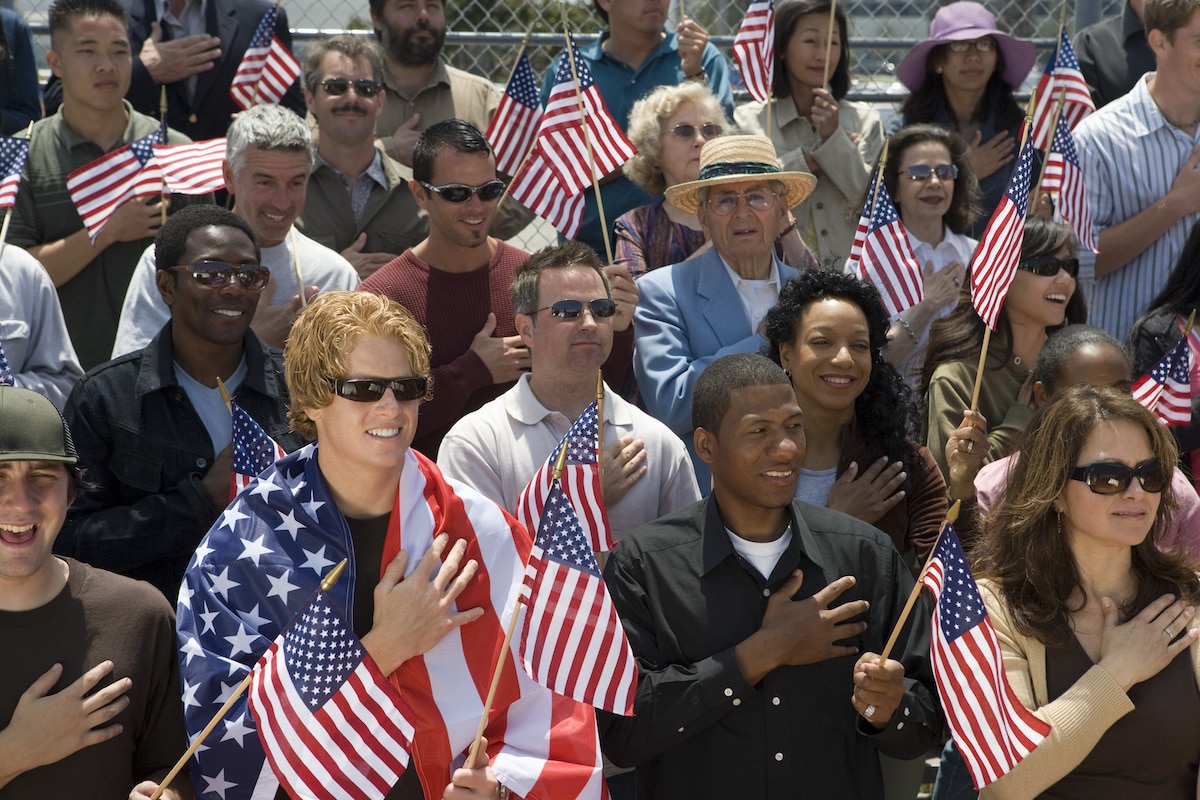You’ve seen it in classrooms, at sports events, and even in Congress. The Pledge of Allegiance has been a daily ritual in America for decades. But as our society evolves, it’s worth asking: is this tradition still relevant, or has it become an outdated ritual in modern America?
A Tradition That’s Stuck Around

The Pledge of Allegiance has been a part of American life for over a century. But just because it’s been around for a long time, does that mean it still holds the same value today? Are we reciting it out of patriotism, or simply out of habit?
Do the Words Still Matter?

“I pledge allegiance to the flag…” We’ve all said the words, but do they still resonate in today’s diverse and complex society? For some, the Pledge is a meaningful expression of loyalty to the nation. For others, it’s just a set of words that no longer reflect their personal beliefs or the realities of modern America.
What’s Up with “Under God”?

“Under God” wasn’t always part of the Pledge. It was added in 1954 during the Cold War to distinguish the U.S. from the “godless” communists. But today, this phrase has sparked controversy. Is it a unifying statement, or does it exclude those who don’t share the same religious beliefs?
Patriotism or Indoctrination?

Some people see the daily recitation of the Pledge as a patriotic act. But others wonder if it’s more about indoctrination—especially when it’s recited by young children who might not fully understand the meaning. Is it teaching love for the country, or is it just a rote exercise?
Does It Reflect American Values?

America is all about freedom, diversity, and the right to choose. But does the Pledge of Allegiance reflect these values? For many, it’s a symbol of unity. But for others, it feels like a forced expression of patriotism that doesn’t account for the nation’s pluralism.
Opting Out: Making a Statement

In recent years, more students and parents are choosing to opt out of reciting the Pledge. Whether it’s due to personal beliefs, political statements, or discomfort with the ritual, this trend is growing. Is this a sign that the Pledge is losing its place in modern America?
First Amendment Rights and the Pledge

The Pledge has been at the center of legal battles over the years. Opponents argue that mandatory recitation violates First Amendment rights. Courts have upheld the right to opt out, but the controversy raises bigger questions about the balance between tradition and personal freedoms.
A Diverse Nation, A Singular Pledge

America is more diverse than ever, and the Pledge of Allegiance doesn’t necessarily reflect that diversity. For many immigrants and those with different cultural backgrounds, the Pledge might not carry the same meaning. Is it time to rethink how we express national unity in a way that’s more inclusive?
Rituals in a Changing World

Rituals like the Pledge of Allegiance connect us to our past. But in today’s rapidly changing world, do these rituals still make sense? Some argue they provide stability, while others believe it’s time to update our traditions to better fit contemporary values.
Schools: The Battleground for Change

Schools are often where societal changes first take root, and the debate over the Pledge is no exception. As more educators and students question its relevance, schools are becoming battlegrounds for broader discussions about patriotism, inclusion, and tradition.
Is the Pledge Still Unifying?

Supporters of the Pledge say it’s a unifying force in a divided nation. But as America becomes more polarized, is the Pledge really bringing us together, or is it highlighting our differences?
Exploring Alternatives

Some schools are considering alternatives to the traditional Pledge of Allegiance. From moments of silence to other forms of civic engagement, these alternatives aim to honor the spirit of the Pledge while being more inclusive of different beliefs and values.
Generational Shifts in Perspective

Younger generations tend to view the Pledge differently. For many millennials and Gen Zers, it feels like a relic of the past—more performative than meaningful. This generational shift could be driving the broader debate over its place in modern America.
How Other Countries Do It

The U.S. isn’t the only country with a national pledge, but attitudes towards these pledges vary worldwide. In some places, they’re seen as essential; in others, they’re viewed with skepticism. Looking at how other countries handle national pledges can offer insights into whether the Pledge of Allegiance still makes sense today.
What’s Next for the Pledge?

As America continues to evolve, the future of the Pledge of Allegiance is uncertain. Will it remain a staple of American life, or will it fade away as an outdated tradition? The conversation is far from over, and whatever happens next will say a lot about where the country is headed.
Featured Image Credit: Shutterstock / sirtravelalot.
The images used are for illustrative purposes only and may not represent the actual people or places mentioned in the article.





